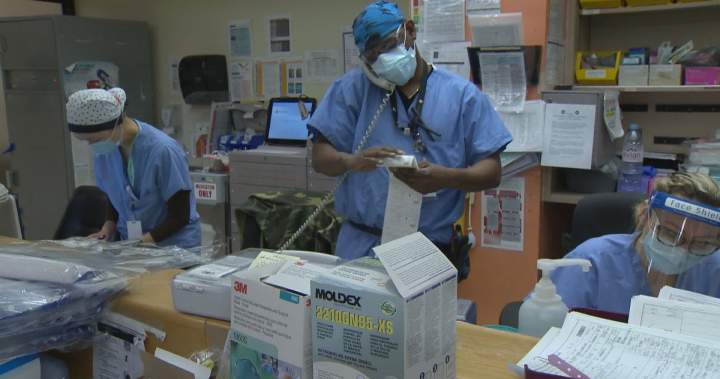The familiar bell on the sliding doors chimes as I enter the Meadow Lake Hospital on a brisk Tuesday morning. While the lobby appears quiet, the reality inside tells a different story. Nurses hurry between patient rooms with practiced efficiency, their movements carrying the weight of long shifts and understaffing concerns that have become all too common in Saskatchewan’s rural healthcare facilities.
“Some days, we’re running at half the staff we need,” confides Sarah Durocher, a registered nurse who has served this community for fifteen years. “We’ve had colleagues leave for urban centers or other provinces. The ones who stay are stretched thin.”
This struggle isn’t unique to Meadow Lake. Across rural Saskatchewan, healthcare facilities have faced chronic staffing shortages that threaten access to essential services. Communities from Estevan to La Ronge have seen reduced hours, service limitations, and in some cases, temporary closures due to insufficient medical personnel.
But this week, a significant announcement brings new hope to these communities. Saskatchewan’s Ministry of Health unveiled an ambitious expansion of its rural healthcare recruitment initiatives, dedicating $12 million to attract and retain healthcare professionals in underserved areas.
The plan includes several components designed to address both immediate needs and long-term sustainability. The province will expand its student loan forgiveness program for medical, nursing, and allied health graduates who commit to rural practice. New graduates can now receive up to $25,000 in loan forgiveness per year of rural service, up from the previous $10,000 cap.
“We need to recognize that rural healthcare isn’t just about filling positions—it’s about building community connections,” explains Dr. Tamara Hinz, President of Saskatchewan Medical Association. “These incentives help new professionals establish roots in smaller centers where they might not otherwise have considered practicing.”
Beyond financial incentives, the province is investing in improved housing options for healthcare workers in rural communities. The initiative includes subsidized housing units and renovation grants for existing properties to create turnkey accommodations for incoming staff.
For communities like Buffalo Narrows, where housing shortages have complicated recruitment efforts, this provision addresses a critical barrier. “We’ve had qualified candidates turn down positions simply because they couldn’t find suitable housing,” says Michael Laprise, healthcare administrator for the community of 1,100 residents. “Having dedicated housing removes one more obstacle.”
The announcement builds upon promising results from pilot programs in several communities. In Rosthern, a targeted recruitment initiative launched last year has already increased staffing levels by 30 percent, allowing the facility to reopen services that had been temporarily suspended.
The Saskatchewan Health Authority reports that communities participating in pilot programs saw a 24 percent decrease in emergency department diversions and closures compared to non-participating communities of similar size.
When I visited the Ile-a-la-Crosse Health Centre last month, staff were cautiously optimistic about similar programs coming their way. The facility serves many northern communities, including several First Nations, where healthcare access has historically been challenging.
“Our people shouldn’t have to drive three hours for basic care,” says Elder Mary Montgrand, who has advocated for improved northern healthcare for decades. “Having consistent staffing means our community members can build relationships with their healthcare providers—something especially important for our seniors and those with chronic conditions.”
The expanded initiatives also include cultural competency training specifically designed for healthcare professionals working in areas with significant Indigenous populations. This training, developed in partnership with Indigenous health organizations, aims to improve care quality and patient experiences.
Statistics Canada data indicates that rural residents across Canada face significantly higher barriers to accessing healthcare than their urban counterparts. In Saskatchewan specifically, rural residents are 1.4 times more likely to report difficulties accessing primary care services compared to those in Regina or Saskatoon, according to provincial health surveys.
While the new funding announcement has been broadly welcomed, some healthcare advocates caution that recruitment is just one piece of the puzzle. “We need to simultaneously address working conditions and professional development opportunities,” says Carla Beck, Leader of the Opposition. “Bringing people in is important, but keeping them requires sustainable workloads and support systems.”
The province acknowledges these concerns and has included provisions for expanded mentorship programs, connecting rural practitioners with specialty colleagues through virtual networks. Additionally, funds are allocated for locum coverage to ensure rural healthcare workers can access vacation time and continuing education without service disruptions.
Back in Meadow Lake, nurse Durocher remains cautiously hopeful. As we sit in the hospital cafeteria, she describes the deep connection she feels to the community she serves. “When I help deliver a baby whose mother I also helped deliver years ago, that’s what keeps me here despite the challenges,” she says. “If these new programs mean more of my colleagues can experience that kind of connection without burning out, that’s a win for everyone.”
The initiative’s success will ultimately be measured not just in filled positions, but in restored services, reduced burnout, and improved health outcomes for rural residents. For communities that have weathered years of healthcare uncertainty, the comprehensive approach signals a recognition that rural healthcare demands unique solutions—and that the people providing and receiving that care deserve nothing less.






